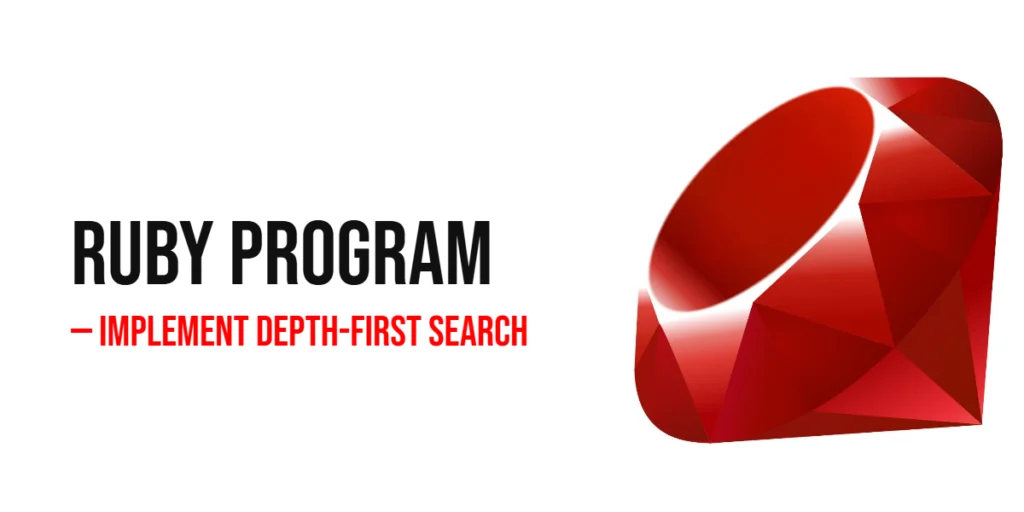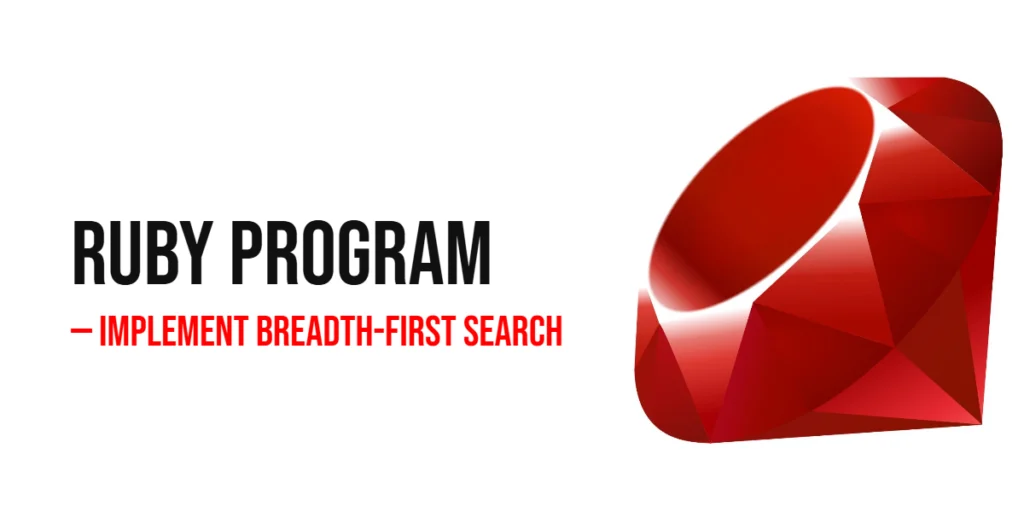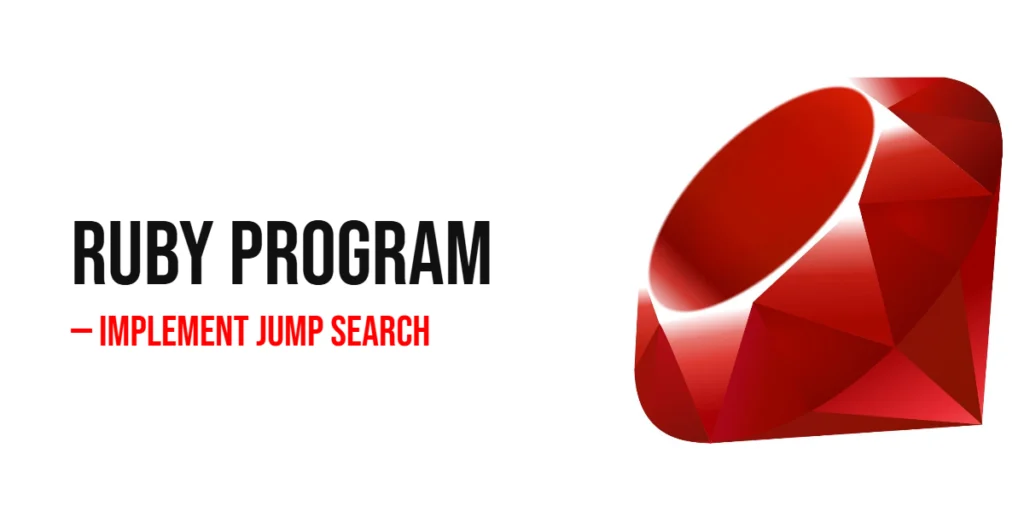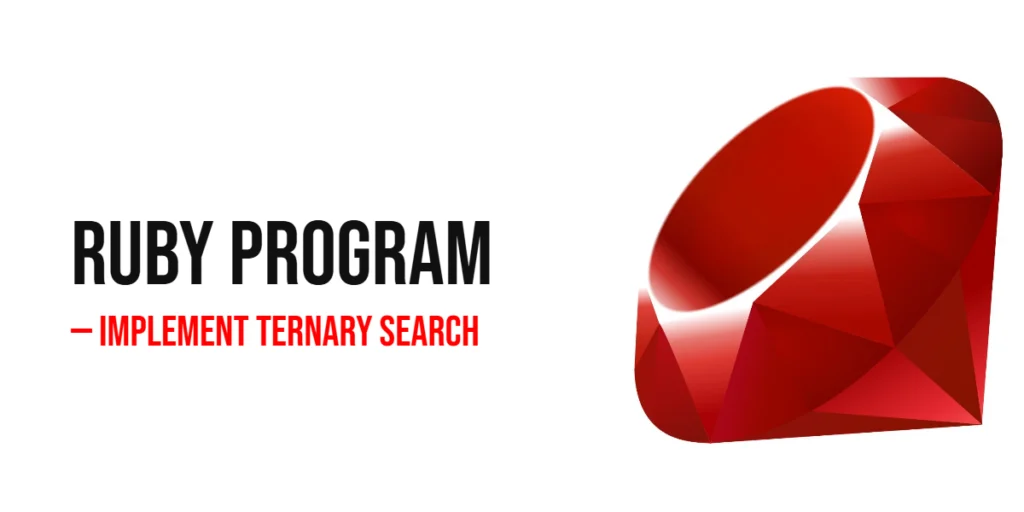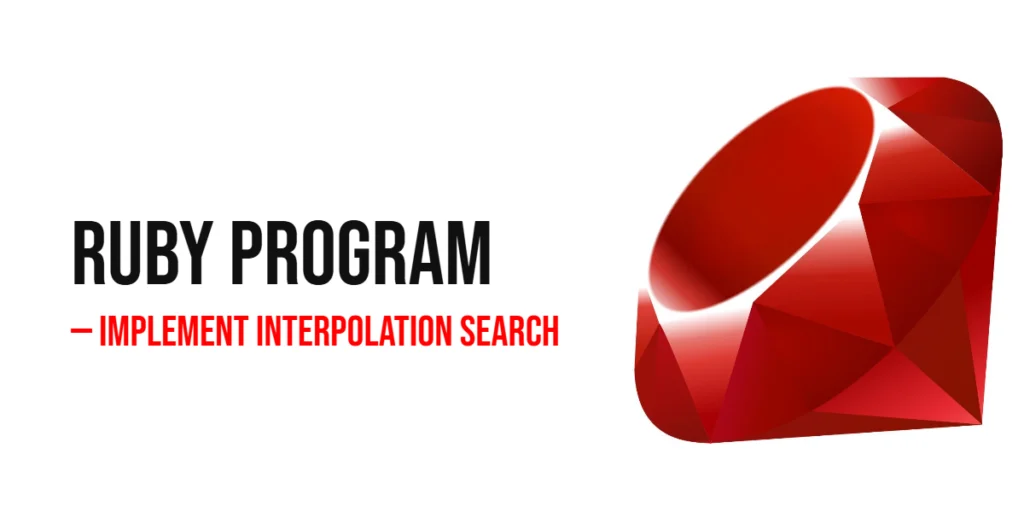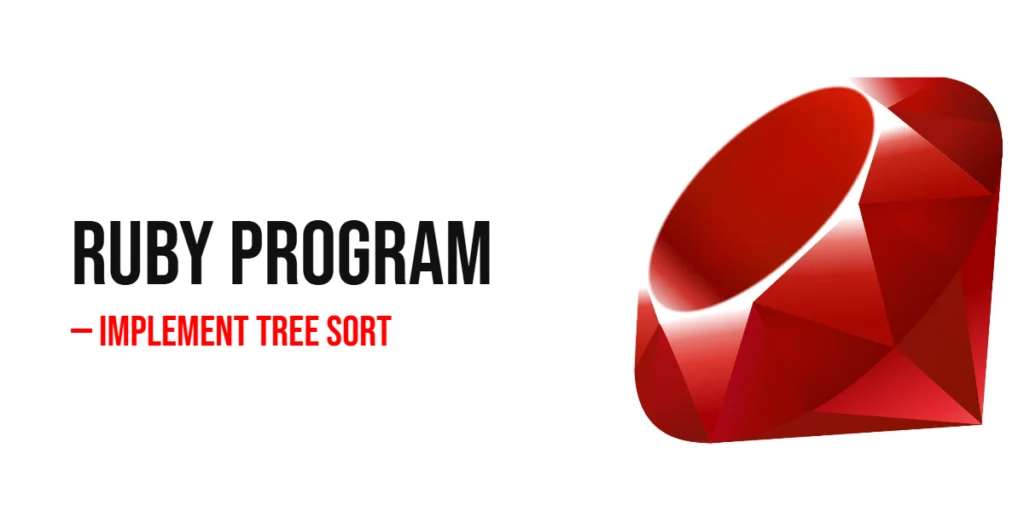Ruby Program to Implement Depth-First Search
When learning about graph algorithms, one of the first and most fascinating ones you’ll encounter is Depth-First Search, often called DFS. This algorithm explores a graph by going as deep as possible along one branch before backtracking. It’s like exploring a maze — you follow one path until you can’t go any further, then return […]
Ruby Program to Implement Depth-First Search Read More »
